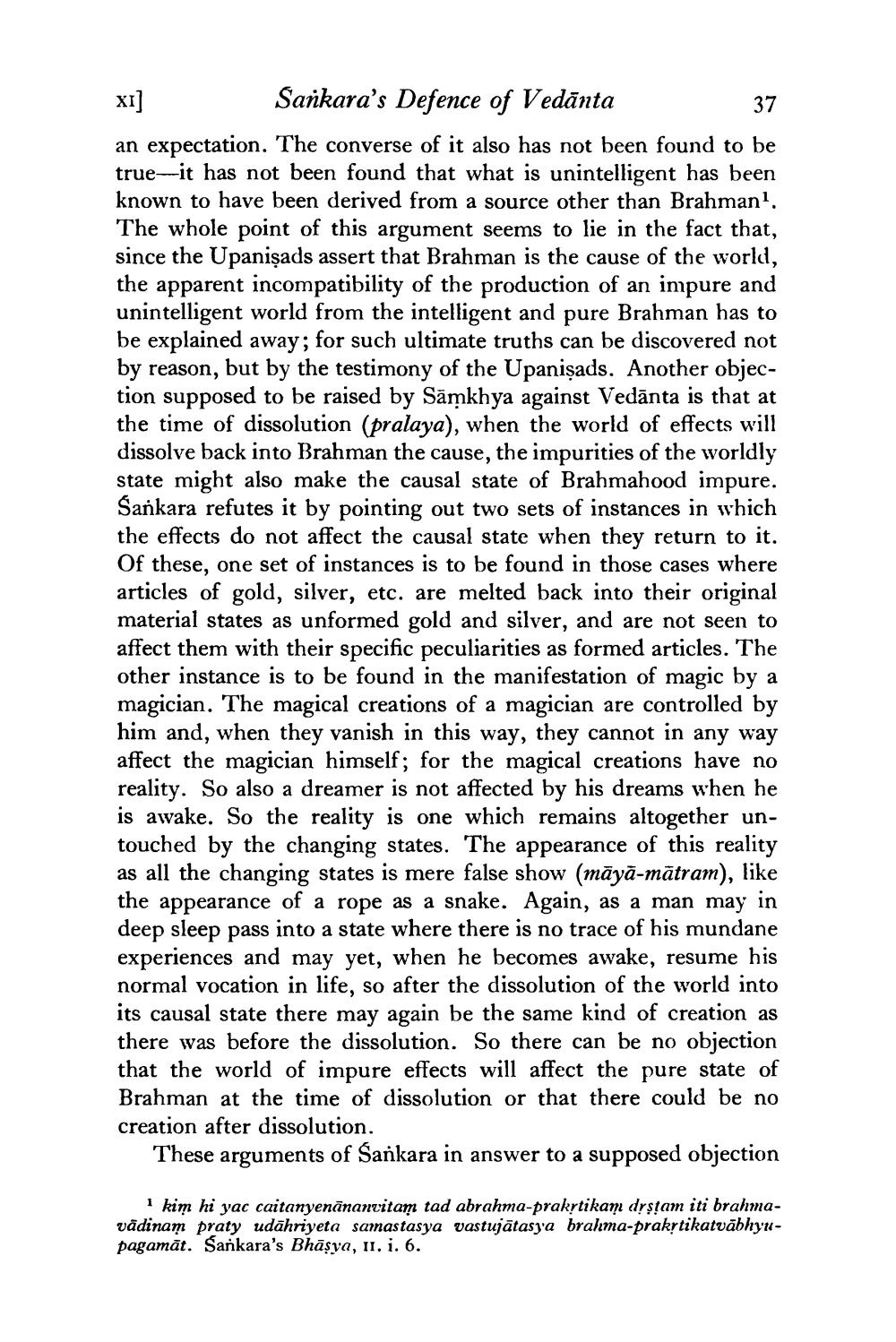________________
XI]
Sankara's Defence of Vedanta
37
an expectation. The converse of it also has not been found to be true-it has not been found that what is unintelligent has been known to have been derived from a source other than Brahman1. The whole point of this argument seems to lie in the fact that, since the Upanisads assert that Brahman is the cause of the world, the apparent incompatibility of the production of an impure and unintelligent world from the intelligent and pure Brahman has to be explained away; for such ultimate truths can be discovered not by reason, but by the testimony of the Upanisads. Another objection supposed to be raised by Samkhya against Vedanta is that at the time of dissolution (pralaya), when the world of effects will dissolve back into Brahman the cause, the impurities of the worldly state might also make the causal state of Brahmahood impure. Sankara refutes it by pointing out two sets of instances in which the effects do not affect the causal state when they return to it. Of these, one set of instances is to be found in those cases where articles of gold, silver, etc. are melted back into their original material states as unformed gold and silver, and are not seen to affect them with their specific peculiarities as formed articles. The other instance is to be found in the manifestation of magic by a magician. The magical creations of a magician are controlled by him and, when they vanish in this way, they cannot in any way affect the magician himself; for the magical creations have no reality. So also a dreamer is not affected by his dreams when he is awake. So the reality is one which remains altogether untouched by the changing states. The appearance of this reality as all the changing states is mere false show (māyā-mātram), like the appearance of a rope as a snake. Again, as a man may in deep sleep pass into a state where there is no trace of his mundane experiences and may yet, when he becomes awake, resume his normal vocation in life, so after the dissolution of the world into its causal state there may again be the same kind of creation as there was before the dissolution. So there can be no objection that the world of impure effects will affect the pure state of Brahman at the time of dissolution or that there could be no creation after dissolution.
These arguments of Sankara in answer to a supposed objection
1 kim hi yac caitanyenānanvitam tad abrahma-prakṛtikam dṛṣṭam iti brahmavadinam praty udahriyeta samastasya vastujātasya brahma-prakṛtikatvābhyupagamāt. Sankara's Bhāṣya, II. i. 6.




